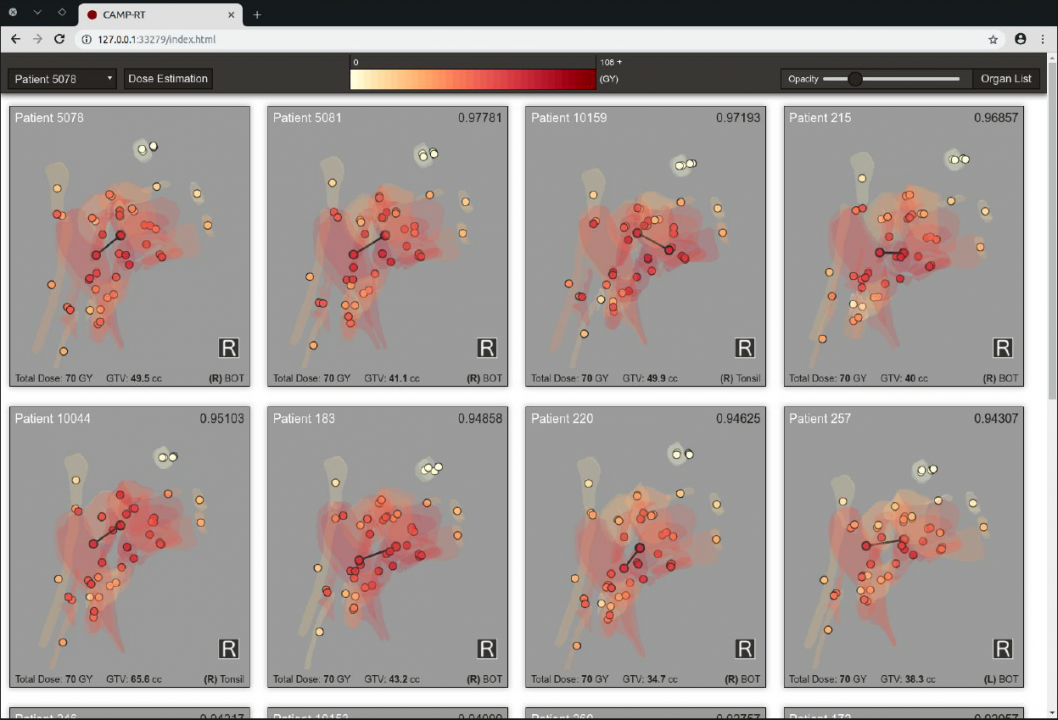|
|
||||||||||||||||||
CAMP - RT: A Patient Similarity-Based Method for Predicting Radiation Dosage in Head and Neck Radiation Oncology
Authors: P. Hanula
Publication: Submitted in partial fulfillment of the requirements for the degree of Master of Science in Computer Science, Graduate College of the University of Illinois at Chicago I present an automated method for computing the spatial similarity of tumor location with respect to organs at risk between multiple head and neck cancer patients and ranking the patients accordingly. I use this method and resulting metric to predict, for each patient, a radiation dose distribution across organs in the head and neck. Furthermore, I go over the design and implementation of a visual analysis tool used to help validate the method. The method uses as input DICOM (Digital Imaging and Communications in Medicine) files provided by our collaborators at MD Anderson Cancer Center. We preprocess these files to extract primary data components and translate them into an efficient format for the automated method and web-based application to read in. The method is written in Python, and utilizes the Structural SIMilarity (SSIM) algorithm for computing similarities. A JSON (JavaScript Object Notation) file is generated containing all patients, and for every patient a dose prediction and ordered list of most similar patients is produced. The web-based GUI (Graphical User Interface) reads in the JSON file and lets users visually explore the data, analyze the method, and gather insights for possible radiation therapy plans. The resulting method and interface, CAMP-RT (Correlations Across Multiple Patients in Radiation Therapy) is continuously being evaluated by domain experts from the MD Anderson Cancer Center. I report their qualitative feedback regarding the method and interface. I further evaluate quantitatively the results of the prediction using a dataset of 101 head-and-neck cancer patients. The results indicate the method has good predictive capabilities. Date: December 31, 2018 Document: View PDF |